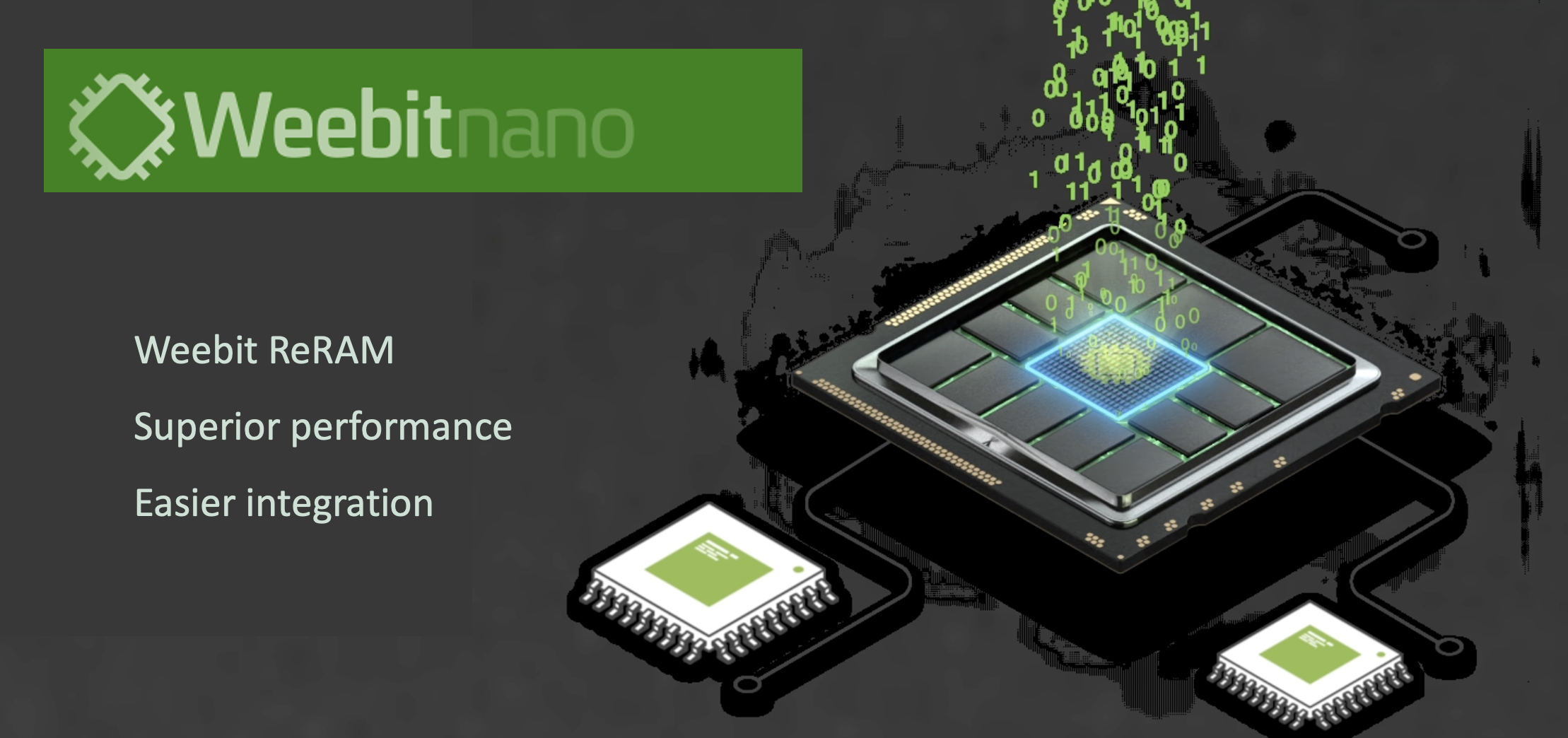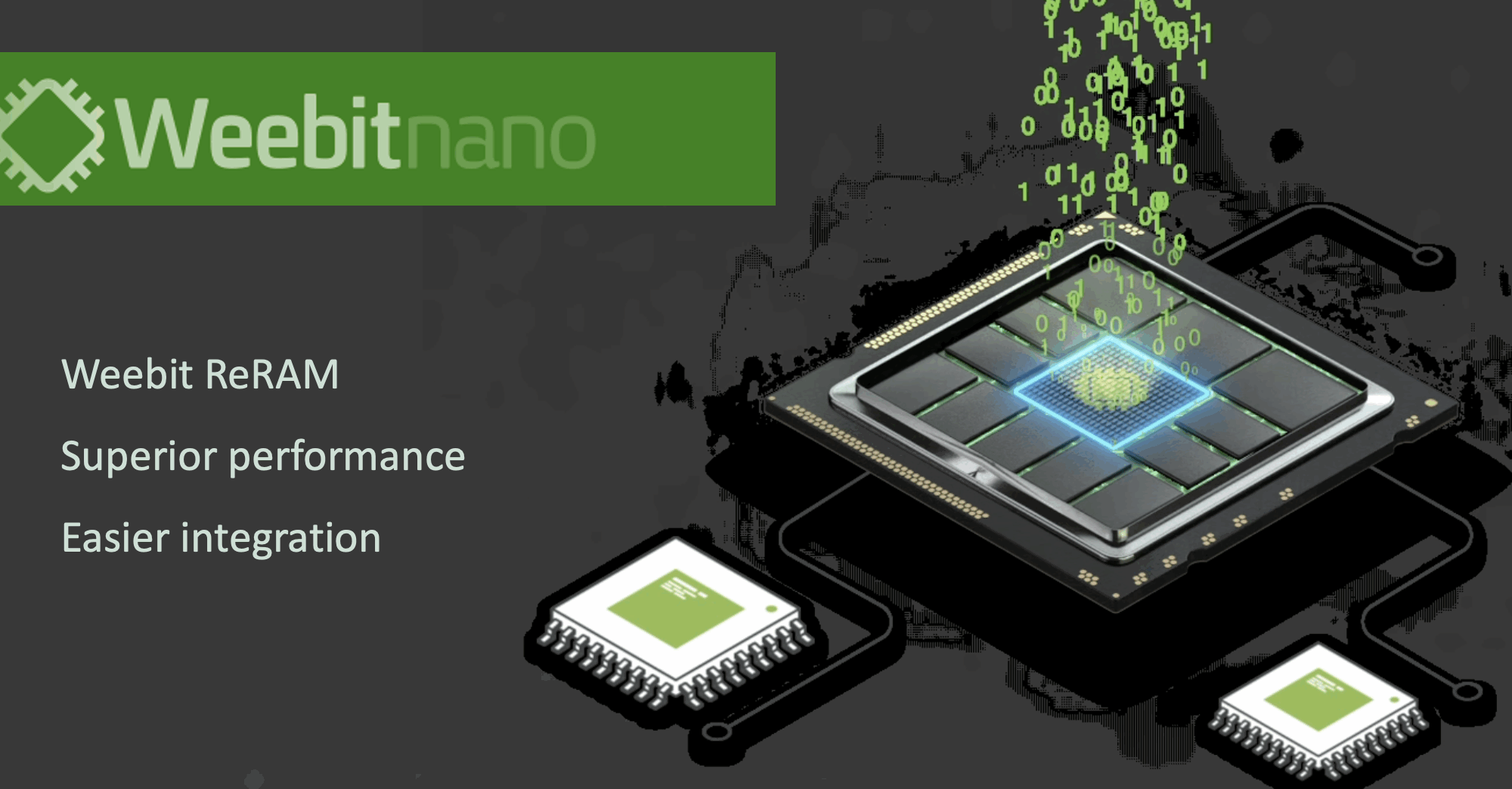
Disruptive technology typically follows a path of research, development, early deployment and finally commercial adoption. Each of these phases are difficult and demanding in different ways. No matter how you measure it, getting to the finish line is a significant milestone for any company. Weebit Nano is disrupting the way embedded non-volatile memory is implemented with its resistive RAM, or ReRAM technology. The company recently announced some new developments that indicate that the all-important move to commercial adoption is happening. Let’s look at the details as Weebit Nano moves into the mainstream with customer adoption.
Why This is Significant
Embedded non-volatile memory (NVM) finds application in many high-growth markets including automotive, consumer, medical/wearable, industrial and the ubiquitous application of AI inferencing on the edge to name just a few. Flash has been the workhorse here for many years. But flash is hitting limits such as power consumption, speed, endurance and cost. It is also not scalable below 28nm.
Newer technologies such as ReRAM offer a way around these issues to keep the innovation pipeline going. Weebit Nano was incorporated in 2015 with a vision of creating a leap forward in storage and computing capabilities to drive the proliferation of intelligent devices. Its development and validation in the market of ReRAM has been an important part of that journey. This is worth watching as ReRAM delivers a combination of high performance, low power, and low cost that is not achievable by other NVMs.
You can learn more about Weebit Nano’s journey on SemiWiki here.
What Was Announced
As a public company traded on the Australian Securities Exchange (ASX), Weebit Nano recently issued a Q4 FY25 Quarterly Activities Report. A key announcement was that the technology transfer work to onsemi was progressing well with tapeout of first demo chips embedded with Weebit ReRAM expected this year. For background, NASDAQ-100 onsemi is a tier-1 IDM, designing and manufacturing both its own products and supporting a few select product companies.
The announcement went on to report that after tapeout and qualification, Weebit ReRAM will be available in onsemi’s Treo™ Platform. This provides a cost-effective, low-power NVM suitable for use in high temperature applications such as automotive and industrial. Treo is an analog/mixed signal platform available from onsemi. You can learn more about the Treo Platform here.
Weebit Nano also announced that it is on track to complete qualification at DB HiTek this calendar year as well. DB HiTek, formerly Dongbu HiTek, is a semiconductor contract manufacturing and design company headquartered in South Korea. DB HiTek is one of the major contract chip manufacturers, alongside TSMC, Samsung Electronics, GlobalFoundries, and UMC. It is also the second-largest foundry in South Korea, behind Samsung Electronics. You can learn more about DB HiTek here.
It was also reported that DB HiTek is demonstrating Weebit’s ReRAM, embedded in a test chip manufactured at DB HiTek, at industry events such as the PCIM conference in Germany – Europe’s largest power semiconductor exhibition. The edge AI demonstration, running on a DB HiTek 1Mb ReRAM module in silicon, showed an application of gesture recognition and was effective to showcase for potential customers the advantages of integrating ReRAM on-chip.
It was also reported that technical evaluations and commercial negotiations are progressing with more than a dozen foundries, IDMs, and product companies. Weebit remains well-positioned to meet its targets, securing multiple licensing agreements before the end of the calendar year.
Related to this, another key announcement is that Weebit Nano signed a design license agreement with its first product customer. The customer, a U.S.-based company, plans to incorporate Weebit’s technology into select security-related applications. This is an important milestone in Weebit Nano’s transition to commercial adoption, with more licensing deals expected soon.
To Learn More

The announcement went on to provide impressive financial details for the company. There are also comments from Coby Hanoch, CEO of Weebit Nano that are definitely worth reading. Almost every design requires some type of embedded non-volatile memory. In the face of advancing process nodes, Weebit Nano’s ReRAM is one to watch. You can read the entire announcement here. And that’s how Weebit Nano moves into the mainstream with customer adoption.
Also Read:
Relaxation-Aware Programming in ReRAM: Evaluating and Optimizing Write Termination
Podcast EP267: The Broad Impact Weebit Nano’s ReRAM is having with Coby Hanoch
Weebit Nano is at the Epicenter of the ReRAM Revolution
Share this post via:





Comments
4 Replies to “Weebit Nano Moves into the Mainstream with Customer Adoption”
You must register or log in to view/post comments.